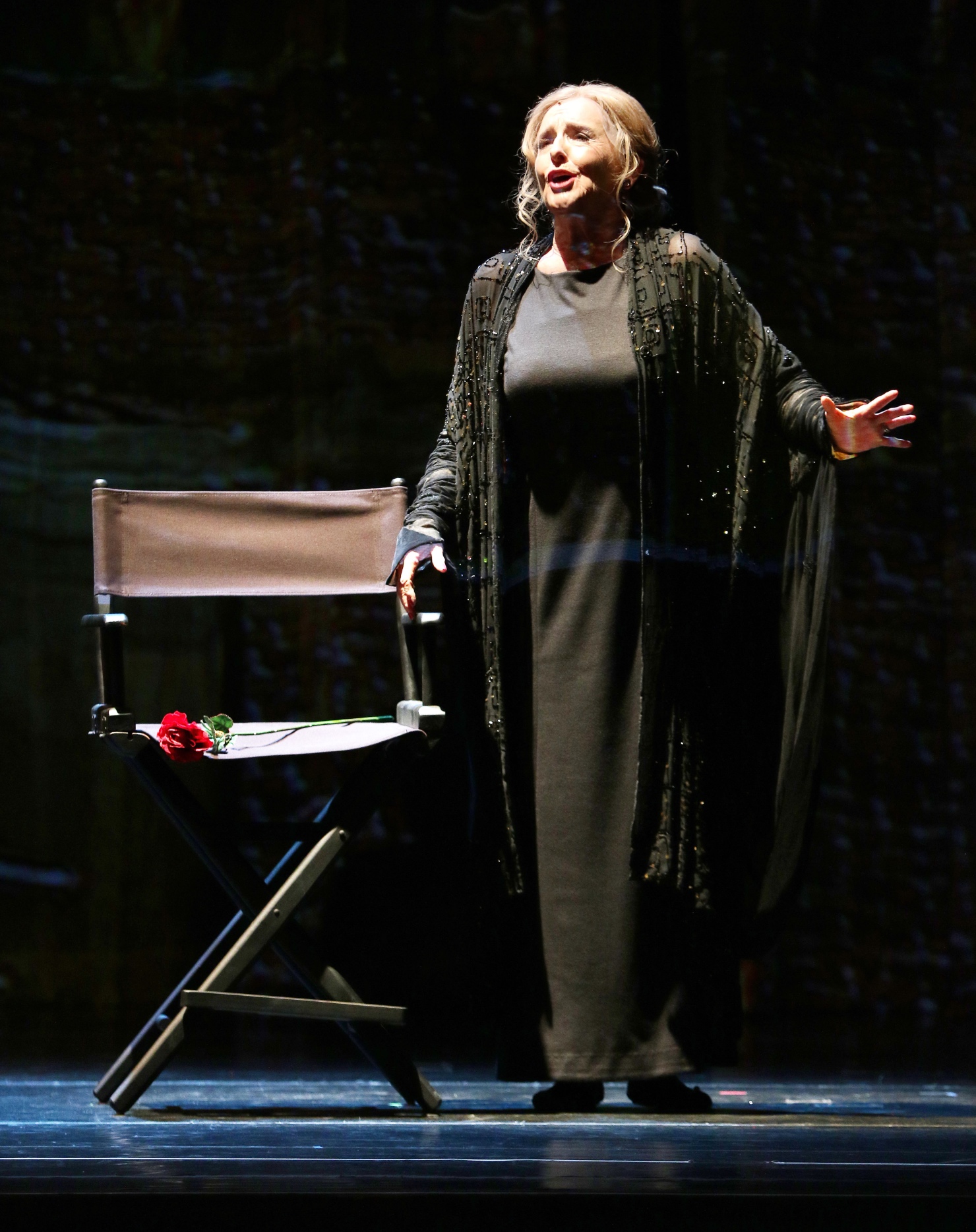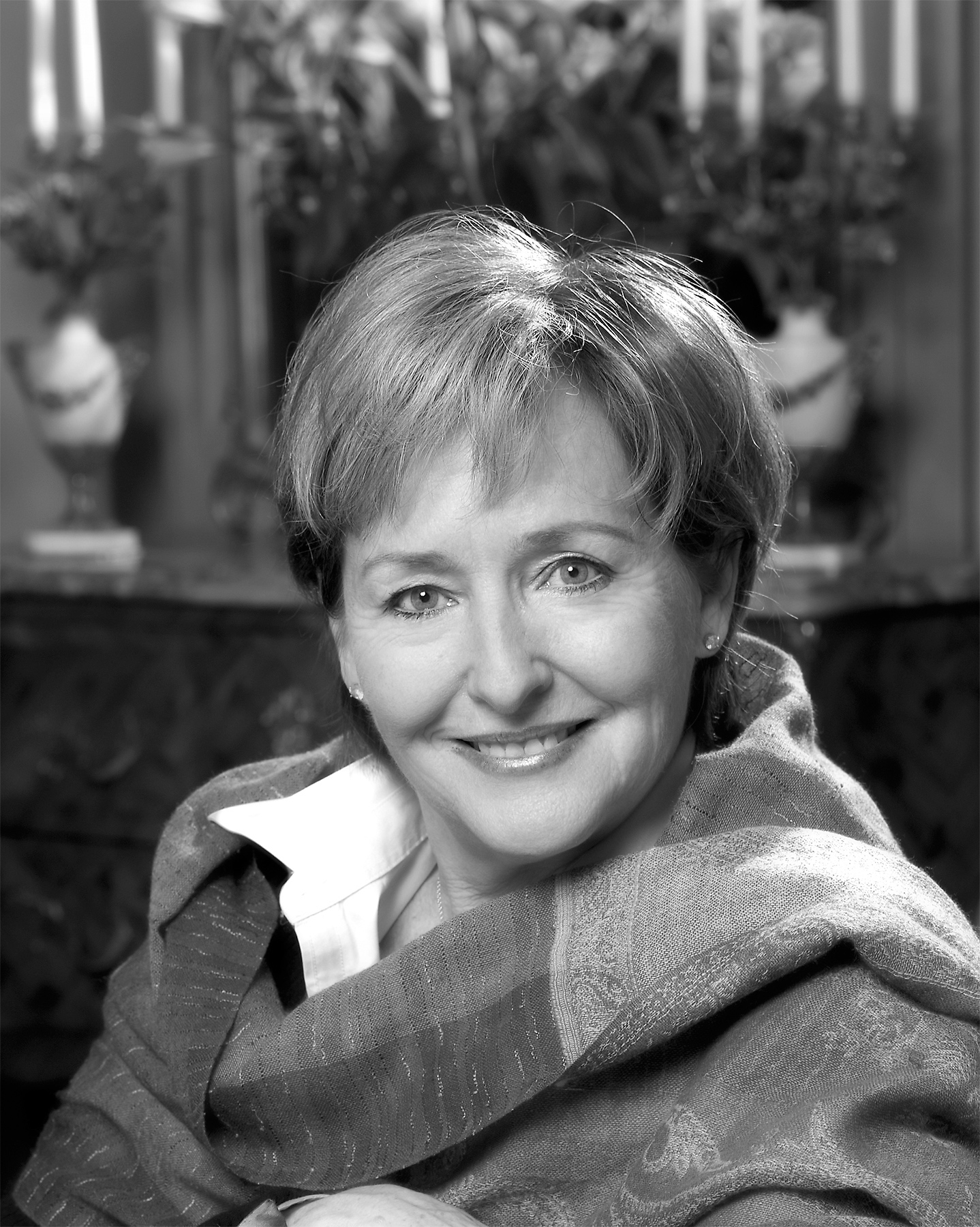
Talking with singers: Frederica von Stade
InterviewOn Three Decembers
I’ve been an enormous fan of Jake Heggie’s since I met him - as a human being, as a composer, and as a friend. When he asked me to do this I was thrilled.
Three Decembers is based on a short play by Terrence McNally, Some Christmas Letters, which had a great cast with Julie Harris. That provided the essential story.
Jake and his amazing librettist Gene Scheer created this piece that is a family story, a very honest typical family dynamic. For me, that’s always incredibly interesting. It’s about a mother, who is an actress, and her two children. She has imposed all the things that come from a public career on her family. That is also in my life and I got to explore that. She is self-centered and difficult - and that’s fun - and she is holding on to an incredibly dark secret that her children don’t know. It goes on for three decades. At first, she’s in the prime of her career, then her son, who is gay, loses his partner to AIDS. I was very much a part of that AIDS crisis when it first came about and I lost four or five friends to AIDS. That was something to be explored too in the role. In the last part she’s gone. For me that is the most touching. Maddy says “I’m so awfully glad I showed up for it [life]” and her kids say they are glad too.
I love Jake Heggie so much. There’s no way I can claim him as a son but I’m so proud of him.
Every mom wants to think they didn’t ruin their children’s lives, that the love they feel for their kids went to a good effect, that it carried them forward in their lives, that it was a basis of success. I love that moment. It is my moment because you spend a lot of time thinking of all the things you did wrong with your kids.
I played Three Decembers because I was asked to do it and I’m doing it again because I’ve been asked to do it again. I’m in a time of my life when I say yes. At certain times in your life, if you’re invited, you just say yes.
On collaborating with contemporary composers like Jake Heggie, Ricky Ian Gordon, Dominick Argento and Lambit Beecher and working with the composer in the room
It’s a gift to be able to do this. All four are great men of the theater. They have a deep respect for telling a story, for what works on stage, and they also know and love the human voice.
I love Jake Heggie so much. There’s no way I can claim him as a son but I’m so proud of him. I’m so proud of who he is and what he has given to his art, how he treats people. He’s my hero, but they’re all heroes. It’s been a joy to work with them. I loved working with Dominick Argento [who just passed away on February 20 this year]. I absolutely treasured my time with him. And Ricky Ian Gordon. I did a piece about an old Texas lady with Ricky and I’ve worked a lot in Texas so it meant a great deal to me to explore the Texas phenomenon of huge ranches. It was about a woman who married a rancher. Texas is flat but a lot of it is drop dead gorgeous. It’s been a chance to explore all this.
Of course, it would have been amazing to work with Mozart like that [in the room].
The [composers] are the ones who are creating it and they know what they want. They’re flexible to a point but in a way, we are just the sales girls.

On why she sings
I’ve been singing from the time I was three. Singing has always been a great comfort. As a child I had a wild imagination and I was always creating little scenes. If I was playing with leaves, I would make pathways and roads. I was lucky to be a child towards the end of World War II when we didn’t have television. We played and used our imaginations. Singing is an expression of joy. That’s why I sing. I had a very joyful childhood. I spent all the summers with my grandmother in the full-on country in New Jersey, swimming, riding bikes, on farms. I adored my mom. She was incredible.
The whole question of Fach and what type of voice you have is like the subject of what kind of blond you are.
To this day, even though I’m not always happy with the way my voice sounds, even at my age, I enjoy it. I’m working harder than I ever have because I have no timeline. I don’t have to achieve anything. I’m starting to teach a little bit at the conservatory - interpretation, not voice. I need to stay on my game to know what the kids are going through and find ways to help them, to explain what has worked for me that might work for them. I sing all the time. People sometimes ask me on subways and trains to please be quiet because I’m singing.
On Zwischenfach
The whole question of Fach and what type of voice you have is like the subject of what kind of blond you are. You might be ash blond, golden blond, light blond, dark blond. Everybody is an individual.
The German operatic system is stricter than we are in the States. If you sang Susanna, you were probably going to sing a lot of lighter soprano roles. But not everything is written exactly that way for a voice. I don’t think composers think like that. There are certain roles that are sung by sopranos and mezzos and tenors even. I did an opera, Chérubin by Massenet and the Prince was written to be a mezzo-soprano but when I did it, the Prince was Nicolai Gedda, a tenor. I’ve even heard Der Rosenkavalier with a tenor singing Octavian, which is a boy’s role. It does sound weird but it’s an exploration. The superstar of our day, Joyce DiDonato, has done a lot of the bel canto roles that were strictly soprano. It also depends on your type of personality, the character, and the vocal character. I spent a lot of my career singing Mélisande of Pelléas et Mélisande. Mélisande only says about 60 words in the whole opera. “Non je ne suis pas heureuse.” I loved doing it and that is a soprano role.
Singers today are less confined because they are beautifully trained. They have wonderful coaches and wonderful teachers. They have young artist programs and there’s an enormous amount of guidance.
The problem in my generation was the size of the houses. The Metropolitan Opera House is almost 4000 people. It has an astonishingly great acoustic. Chicago is about the same and so is San Francisco Opera. If you’re thinking of projecting the amount of sound that you need, that could be a consideration. There might be a role that you would consider doing somewhere else rather than in a great big theater. Most of the European houses are nowhere near the size of the Metropolitan Opera or the Dallas Opera. Plus, there are many conductors that keep the orchestra too loud. It is opera and not symphony. The point is to hear the voices. The voices are telling the story.
The myth of the diva is not a myth. I actually sort of miss it. I started in the time of divas.
On what keeps her driven
At this point in my life, I really love seeing kids come along and prosper in music and through music. I volunteered in schools. I worked in a little Catholic school for almost 15 years and started a choir and a violin program and took kids to the opera. I’ve worked in daycare centers for very little kids doing singing with them, all low-income kids.
Now I work with the Young Musicians Choral Orchestra. It’s an extraordinary program for children 9 through 18 that does intensive music preparation. They have to sing and also have to play an instrument. Lessons are free and there are weekly rehearsals. There’s an intensive 8-week program in the summer from 8 AM till 6 PM. The purpose of it is to get those kids into college. Usually, college would not be in their future because they’re from very low-income families. Music gives them great discipline and a great joy.

On opera singers
In general opera singers are really fun and really silly. Many of us have come to our careers later so we’re not trained musicians. We need a certain amount of training to do it but not like a violinist, who if they haven’t started by eight, they’re cooked. The way I describe opera singers is kind of like third graders. All of them.
In my years of singing I never met somebody awful. In general, opera singers are fragile because they’re basing everything on this little thing in their throat. They use their ego to protect themselves and not to push themselves on everybody. That’s what you need to be silly enough to think you can go out there and entertain so many people.
I love all the friends I made and I love this particular time in a piece when we are rehearsing every day and seeing each other.
The myth of the diva is not a myth. I actually sort of miss it. I started in the time of divas. When Ms Tebaldi would come in to the opera house – the buzz was so overwhelmingly exciting. She was marvelous looking – tall, big, with big hands. She always had the most fabulous large gold jewelry, and a hat, and fur. And she always had her assistant and her dog with her. We were on the floor with appreciation and excitement.
When Birgit Nilsson came in the house, it was the same thing. They had assistants and though you might find that now a bit here and there, our biggest superstar of the day Joyce DiDonato will come in her blue jeans and bike to work.
Tebaldi and Nielsen were also fun and dear. There was nobody funnier than Nielsen. She just made jokes all the time. Domingo is one of the nicest people in the world. He’s kind to everybody in the opera house. He knows everybody’s name. Marta, his wife is also so nice. Luciano was adorable. A whole group of us used to go out an eat together and he was always eating off my plate. He was a big guy. I played his son in Idomeneo. I have such joyful memories.
I love all the friends I made and I love this particular time in a piece when we are rehearsing every day and seeing each other. There’s a lot of laughter. It’s a little silly because you’re being somebody else.


Comments